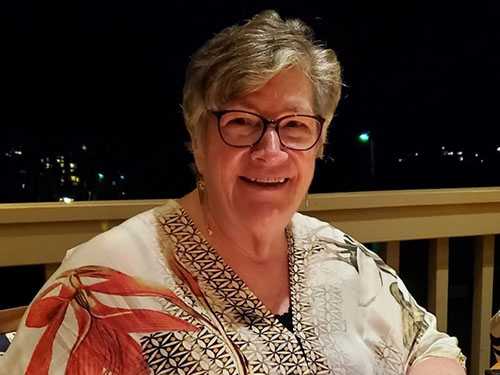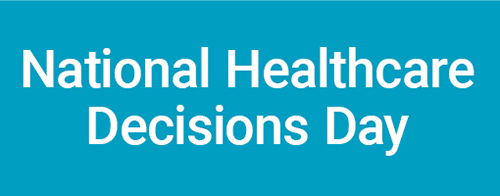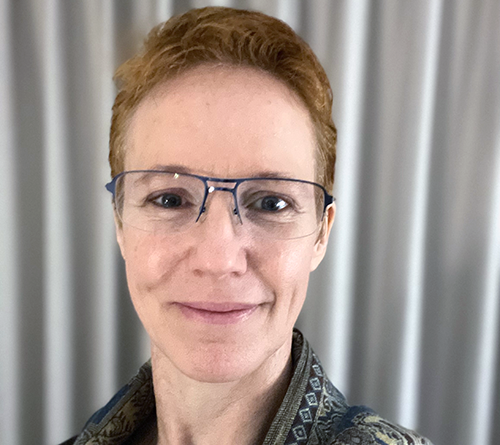How can we help?
888-283-1722
Call us now at 888-283-1722
24/7 Referrals and Nursing Support
Voices of Care Blog

Why I Have a Health Care Proxy
Posted on April 13, 2022 by Mary McCormick-GendzelNobody likes to think about when or how they will die, but death is in everybody’s future. Just like taxes, it’s one of the few things in life that are certain.
As a retired hospital nurse, I accepted this reality a long time ago. I don’t know when it will happen to me, but, if possible, I want some control over how it happens.
That’s why I have a health care proxy and have spoken with my daughter – who is my health care agent – about which medical treatments I would and would not want if I were unable to speak for myself.
Talking about end-of-life health care wishes
I was my mother’s health care agent and I firmly believe that our discussions helped her have a peaceful death.
Nearly 20 years ago, I read an article, “Talk Turkey,” about how to discuss family members’ end-of-life wishes at the Thanksgiving table. My mom was not ill then. On Turkey Day I got the conversation going and we all said we didn’t want to be kept alive if we were brain dead.
Some months later, Mom asked me to be her health care agent and I gladly accepted. We completed the Massachusetts Health Care Proxy form and she told me what medical care she did and did not want.
In 2004, a CT scan discovered my mom had a lung tumor, but it couldn’t be diagnosed without surgery. Mom decided the risk of removing it was too great. She was 75 with many cardiovascular issues. She had a below-the-knee amputation on the right and a partial foot amputation on the left; to undergo surgery was very high risk.
The growth wasn’t affecting my mom’s ability to live on her own. She wanted to remain in her home and told me that she did not want to be resuscitated in the hospital if I were faced with that decision. I shared Mom’s health care wishes with our family.
For nearly five years, the doctors performed CT scans every six months and each time asked Mom if she wanted surgery. The tumor showed no major changes during those bi-annual scans and her quality of life was as good as it was going to be. Each time, she replied, “No.” Her quality of life was compromised due to the amputations, but she wasn’t in pain.
Until she was. In December 2008, she went to the hospital for severe back pain. A scan showed the growth had metastasized to her bones and she had a fracture of her 12th vertebrae. From the hospital she had to go to a nursing home.
Following Mom’s advance directives
Mom was often in pain at the nursing home, so I had to intervene. I told the nurse and doctor that they needed to medicate her enough to make the pain stop. They were hesitant, so I brought the nurse to Mom’s room.
“Mom, would you rather be asleep and pain-free, or awake and in pain?” I asked.
“Asleep,” Mom replied.
“Medicate her,” I instructed the nurse.
Once Mom was properly medicated, she became unresponsive and I, as her health care agent, made decisions for her. That’s when I called hospice.
I had been a volunteer for Hospice of the North Shore (now Care Dimensions), so I called them for a consultation. We had a family meeting with a hospice nurse. My sisters listened, and they agreed with me that Mom should go on hospice. Her condition was so acute that she was admitted to the Kaplan Family Hospice House.
The Kaplan House staff made sure Mom was comfortable. She was able to accept visitors. Our whole family was able to be together and share memories as Irish music played in the background. Shortly after she was admitted to Kaplan House, she became unresponsive, but her children and grandchildren were still with her. On the last day, I told my siblings that the children should leave. Mom passed peacefully about 20 minutes after they left.
My mom died the way she wanted to die: pain-free and with her family by her side. She had a plan and I helped carry it out.
If you’re willing to face the reality that we’re all going to die, choose a person you can trust who will make health care decisions for you if you cannot do so. Talk to them about the care you would and would not want. Make a plan and sign a health care proxy. Learn more and access forms at: https://www.caredimensions.org/PlanningAhead.
About the author
Mary McCormick-Gendzel is a retired nurse and a volunteer for the Care Dimensions Patient and Family Advisory Council. She resides in Marblehead.
Additional Posts
Health Care Planning Made Simple
Posted on April 11, 2024 by Ellen DiPaola, JD in Advance Directives, Health care directivesA step-by-step process listing the important conversations and planning tools you need to get health care you want over your lifetime ...
Continue reading5 Steps to Take Charge of Your Health Care Wishes
Posted on April 12, 2023 by Mary Crowe, LICSW, ACHP-SW, C.D.S., CDP in Advance Directives, Health care directivesHere's how you can be in more control about medical treatments you would or would not want if you were unable to express your health care wishes yourself. ...
Continue readingMemory of Mom Guides Health Care Planning
Posted on April 6, 2022 by Meghan Gardner in Advance Directives, Health care directivesA Care Dimensions hospice volunteer recalls how a special day with her mother inspired her to complete advance directives about her end-of-life wishes. ...
Continue readingAnyone—patient, family, care provider—can make a referral. Fill in the form online or call us today.
Since 1978, Care Dimensions, formerly Hospice of the North Shore, has provided comprehensive and compassionate care for individuals and families dealing with life-threatening illnesses. As the non-profit leader in advanced illness care, we offer services in over 100 communities in Massachusetts.
Copyright 2025 | Care Dimensions, 75 Sylvan Street, Suite B-102, Danvers, MA 01923 | 888-283-1722 | 978-774-7566 |








